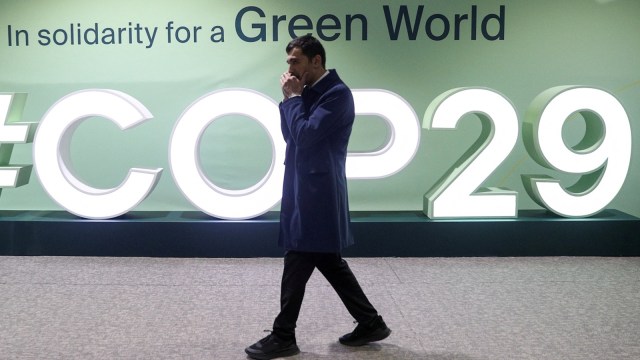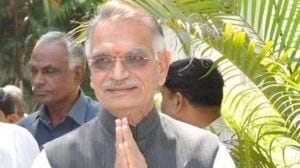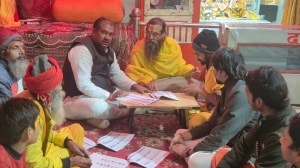COP29: Countries begin from scratch on finance talks
Countries have been putting forward their proposals which are widely divergent right now.
 The two-week conference is aiming to deliver a comprehensive finance agreement to enable greater availability of money for climate action. (Reuters)
The two-week conference is aiming to deliver a comprehensive finance agreement to enable greater availability of money for climate action. (Reuters)A day after the developing countries rejected a pre-conference draft of the finance agreement here at COP29 climate meet, a new draft emerged on Wednesday reflecting all the various options and ideas proposed by countries, allowing the negotiations to start from scratch.
The two-week conference is aiming to deliver a comprehensive finance agreement to enable greater availability of money for climate action. Trillions are dollars are estimated to be required every year to fund all the climate actions that countries have promised, or intend, to take, but little is available right now, in relative terms.
But agreeing on the requirement is one thing, mobilising that kind of money quite the other. Countries are deeply divided over what can realistically be mustered every year, who all should contribute, what proportion should come from public sources and what left for private mobilisation, how much should be allocated to mitigation, adaptation and loss and damage, and even more basic issues like what classifies, or gets counted, as climate finance.
Countries have been putting forward their proposals which are widely divergent right now. On Tuesday, the group of G77 and China, which consists of over 130 developing nations, had said that developed countries must agree to mobilise at least 1.3 trillion dollars every year, only to help the developing world fight climate change.
A key issue in finance negotiations is the expansion of contributor base. Right now, only developed countries identified in a list in 1994 UN Framework Convention on Climate Change are obliged to raise finances. These countries argue that the scale of finance required is much higher than the 1990s and therefore others must also contribute. They suggest applying some criteria to make others responsible. One suggestion is to include countries with per capita gross national income over USD 52,000. That would bring countries like the UAE, Qatar and Singapore, not part of original list, into the fold. Developing countries reject this idea.
The developed countries have not proposed any number, though they acknowledge that the requirement is in trillions of dollars a year. But they contend that they alone cannot raise all this money, and that the contributor base must be broadened to include other countries as well.
The African group of countries on Wednesday rejected this demand for expansion of contributor base.
“The (UN Framework) Convention is very clear regarding the flow of financing. There are established commitments and obligations. Developed countries must lead in providing the financing, while developing countries are the recipients… We cannot reopen the Convention and the Agreement for further negotiation,” they said.
- 01
- 02
- 03
- 04
- 05































